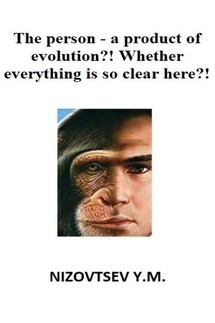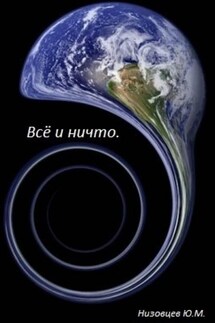Everything and nothingness - страница 9
Berkeley believes existence of things only due to their perception by the human mind, or his soul, inasmuch there is no evidence of separate existence of things outside human sensations: “XXIII. But say you, surely there is nothing easier than to imagine Trees, for instance, in a Park, or Books existing in a Closet, and no Body by to perceive them, I answer, you may so, there is no difficulty in it: But what is all this, I beseech you, more than framing in your Mind certain ideas which you call Books and Trees, and the same time omitting to frame the Idea of any one that may perceive them? But do not you your self perceive or think of them all the while? This therefore is nothing to the purpose: It only shews you have the Power of imagining or forming Ideas in your Mind; but it doth not shew that you can conceive it possible, the Objects of your Thought may exist without the Mind: To make out this, it is necessary that you conceive them exist unconceived or unthought of, which is a manifest Repugnancy” [9, p. 18].
To the extreme, like Berkeley, Husserl does not come, but he joins to Hobbes and Berkeley in the thought, that meditation of the primary source, or the appearing, is the true source of knowing: “No conceivable theory can make us err with respect to the principle of all principles: that every originary presentive intuition is a legitimizing source of cognition, that everything originarily (so to speak, in its “personal” actuality) offered to us in “intuition” is to be accepted as what it is presented as being but also only within the limits in which it is presented there. We see indeed that each theory can only again draw its truth itself from originary data. Every statement which does no more than confer expression on such data by simple explication and by means of significations precisely conforming to them is, as we said at the beginning of this chapter actually an absolute beginning called upon to serve as a foundation a principium in the genuine sense of the word” [10, p. 44].
Along with that Husserl, in fact, if truth is adequate to what we call essence, considers that truth is unattainable in full, i.e. as the absolute: “The specific character of certain categories essences is such that essences belonging to them can be given only “onesidedly”, in a sequence “many-sidedly”, yet never “all– sidedly”” [10, p. 8].
Hume treats truth as compliance of thinking to sensations of the person: “We perceive only properties of those forces which are available to senses" [11, p. 22]; “They are the successive perceptions only, that constitute the mind; nor have we the most distant notion of in place, where these scenes are represented, or of the materials, of which it is composed” [11, p. 253].
In its considerations Hume accurately catches that circumstance that primordial source of Whole for human consciousness are namely sensations. In this respect he is quite right, because it is through the senses information comes into control centers of consciousness of the person. Hume also is right in his doubt about existence and qualities of the things which are beyond the senses. Here he is certainly consistent in their views and findings, and differs from other thinkers in that does not take the responsibility to determine aught unknown to him, to speculate on the basis which is impenetrable for him.









